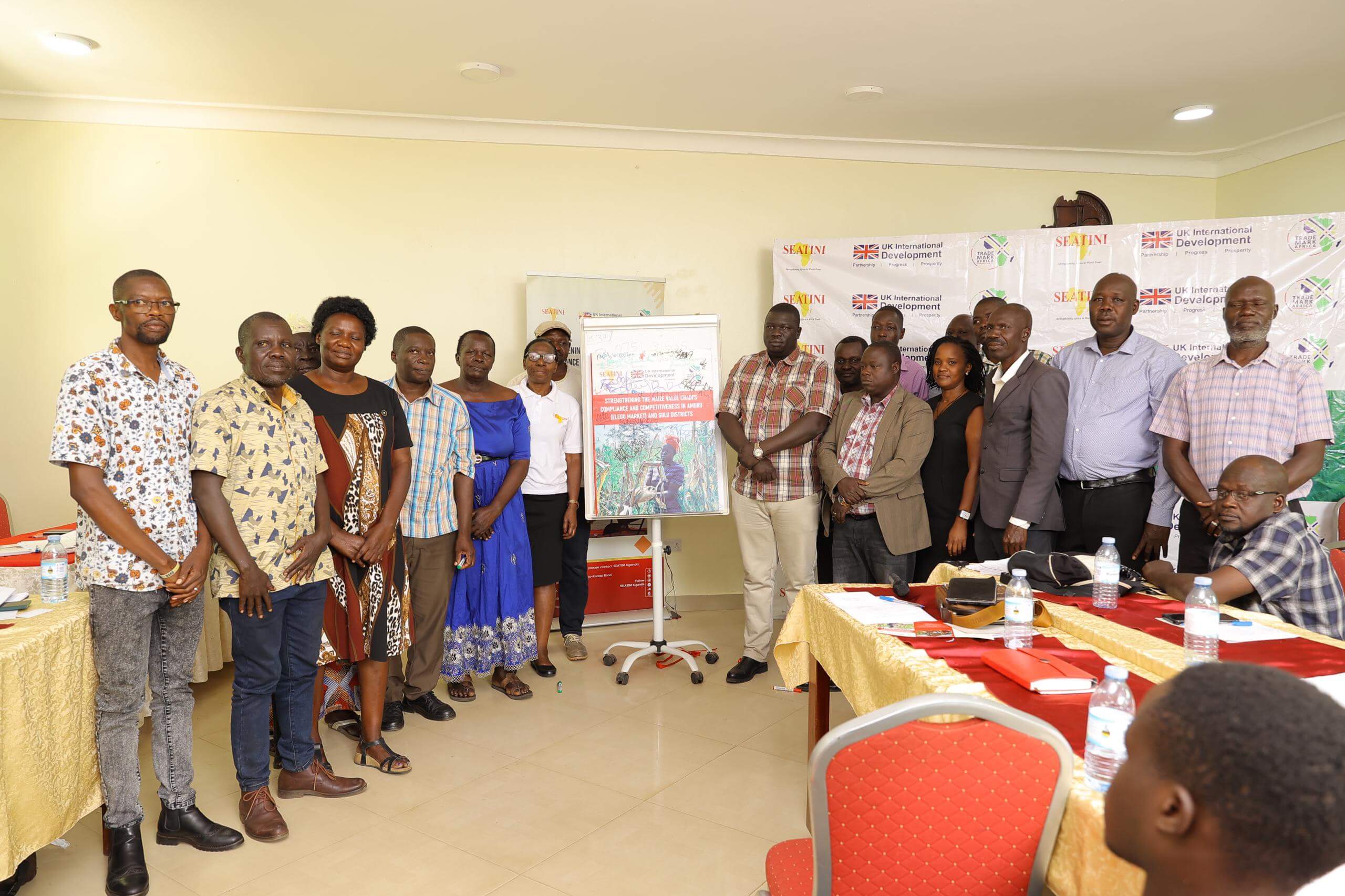
Our Projects are
Transforming African Trade
Quick Contacts
2nd Floor, Fidelity Insurance Centre Waiyaki Way, Westlands

A new project that will help strengthen the maize value chain’s compliance and competitiveness in Gulu and Amuru districts in Northern Uganda has been launched.The project implemented in partnership with TradeMark Africa with support from the UK Government, seeks to strengthen the capacity of maize value chain actors in Gulu and Amuru Districts, with a focus on enhancing compliance with maize standards.
This, in turn, aims to improve quality, market competitiveness, and the livelihoods of farmers in Gulu and Amuru districts. Speaking during the launch at Gulu Churchill Courts Hotel, SEATINI Executive Director, Jane Nalunga said the project is part of their continuous efforts toward enhancing standards compliance for key agricultural products and improving Uganda’s competitiveness in various markets.“There is a reason we chose maize. Maize is an important crop when it comes to food security but also for trade and the immense potential it can contribute to improving livelihoods across the entire value chain and improving incomes at the household level,” Nalunga said.
She explained that maize serves as a key source of food and income for millions of households in Uganda and is widely cultivated across the country due to its adaptability to various Agro-ecological zones.“Maize also plays a significant role in food security and trade with a large portion of the production being consumed locally and the surplus exported to neighbouring countries but its production faces challenges which compromise its quality and consequently leading to rejections by key trading partners.”Previously, Ugandan maize has been flagged and stopped from entering the South Sudan market for allegedly containing aflatoxins.
According to SEATINI’S Nalunga, by bringing all value chain actors including farmers, input dealers, traders, importers and exporters , the project aims at ensuring enhanced competitiveness to address a number of challenges , especially on the Ugandan brand in terms of maize. Praxeda Ndagire from Trade Mark Africa said the goal of the project is to increase border exports of maize from Gulu and Amuru districts to South Sudan and DRC.m“By improving standards and quality, we can unlock new markets and opportunities for our farmers.Our maize has previously been faced rejected in South Sudan and Kenya but this can change. By adopting and adapting the knowledge SEATINI will provide, we can meet standards and reclaim these markets,” Ndagire said.
She noted that improved quality will translate into increased export volumes across borders which benefits everyone in the value chain sector.Hakim Mufumbiro, the Principal Standards officer at UNBS said international standards are key for any product, but was quick to note that they only become useful if implemented.“Stakeholders in the maize value chain must utilize the harmonized standards within the East African Community to ensure market access and quality assurance,” Mufumbiro said.“Environmental standards are key to market access and food security. By understanding and implementing these standards, stakeholders can ensure safe, high-quality products that meet global requirements.”He applauded SEATINI AND Trademark Africa for implementing the project that he said will go a long way in improving the quality of maize.
Disclaimer: The views and opinions expressed in this article are those of the authors and do not necessarily reflect the official policy or position of TradeMark Africa.